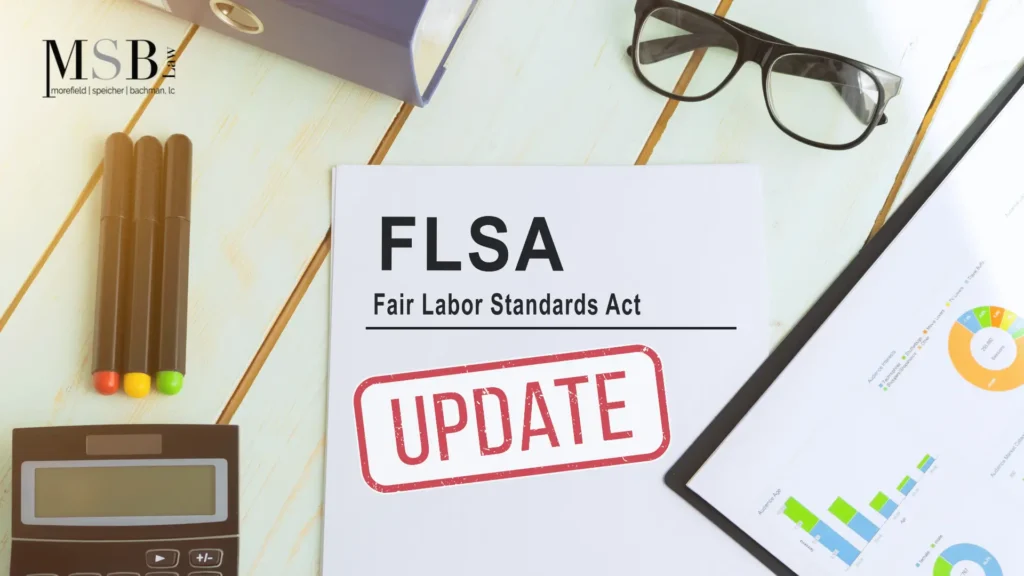The Conversations That Shape the Future: Succession Planning with Purpose
As the year winds down and you gather with family or your dedicated employees, there’s a unique opportunity to start an important conversation about what’s next for your business. At MSB Law, we’ve been privileged to guide countless leaders—just like you—through the transition from “today’s business owner” to “tomorrow’s legacy maker.” Whether it’s over a cup of coffee with your kids or a heartfelt toast at the holiday party, now is the time to think about the future of your business and the legacy you want to leave behind. You’ve spent decades building your business and now you may be feeling ready to step away from the day-to-day demands, and embrace the next chapter of your life. Succession planning isn’t just about paperwork; it’s about deciding what matters most to you and ensuring your values and goals continue, even after you move on. Here are five essential things to help start the discussion with your family or employees as you consider your business’s future: 1. WHO: Choosing Your Successor Who is the right person to carry your legacy forward? This is often the most emotional part of the conversation—deciding who will take over the business you’ve put so much into. Is there someone within your family, or a trusted employee on your team, who is passionate about the business? Are they capable of leading it into the future, or do they need more mentorship before they’re ready? Alternatively, would it make more sense to look for an external partner or even consider a merger or third-party sale? This decision requires a careful evaluation of both skillsets and desires. Choosing the “who” is about making sure that your values, your work, and your relationships can continue with someone who will honor and grow them. It’s also important to openly communicate with the potential successor(s) to ensure they are willing and prepared for the role. 2. WHAT: Defining What You’re Passing On What are you transitioning—is it ownership of the company as a whole, or perhaps specific assets? Do you want to pass along the entire business at once, or do it gradually? Would selling to a key employee, an employee stock ownership plan (ESOP), or a family trust make more sense for you? The “what” helps begin defining the structure of your succession plan. Think about whether you want to retain any involvement in the business, such as an advisory role, or whether you’d prefer a clean break. It’s important to align these decisions with what’s best for you, your family, and your business. It’s also critical to have a valuation of the business performed, so you can be sure you are receiving fair value and making informed decisions about what exactly you are transitioning. 3. WHEN: Establishing the Right Timeline Timing is crucial in succession planning. When is the right time to begin planning this transition? When is it time to execute the transition? Are you looking to step away completely in the next year? Or do you see yourself transitioning out over a few years’ time, and remaining involved in some capacity during the transition to ensure a smooth handover? Establishing a timeline not only gives you peace of mind but also helps those around you prepare for their own futures. Setting clear expectations for “when” helps everyone plan accordingly, and reduces uncertainty for your family, your employees, and your clients. Consider the financial aspects as well—tax planning and structuring, and options for things like tax-advantaged charitable giving, can vary greatly depending on when the transition takes place. It’s imperative to have a team of professional advisors (business lawyer, financial planner, CPA, tax strategist, etc) helping you determine the best strategy for timing.. 4. WHERE: Envisioning Your Next Chapter Where do you want to be after you’ve passed the torch? Visualizing your next chapter is key to planning your transition. Whether it’s spending winters in a warmer climate, moving closer to family, or even starting a new venture entirely, understanding where you see yourself—both physically and emotionally—will shape the steps you take today. Where you plan to live, what lifestyle you envision, and what kind of personal fulfillment you seek are all questions to reflect on. Also consider how “where” impacts the future of the business itself. Do you want to relocate the business, keep it local, or expand into new regions? Having a clear vision of your own future helps ensure the plans you make today align with the life you want to lead tomorrow. 5. WHY: Clarifying Your Purpose Why are you considering making this transition? Why is it important to you to make the transition a success? Understanding your motivations is essential. Are you transitioning for health reasons, to finally enjoy your retirement, or to spend more time with loved ones? What drives you? For some, it’s about maximizing financial returns. For others, it’s about preserving family and customer relationships or continuing a positive community presence and impact. You might be driven by the desire to see your family continue in the same industry. Or perhaps you have a charitable intent that allows your business to make a greater community impact. Clearly identifying your “why” helps guide the decisions and conversations you have along the way. It also ensures that those taking over understand your purpose, so they can continue to act in a way that honors your original goals. Succession planning is so much more than a task to cross off your to-do list. It’s about creating a bridge from where you are now to where you want to be, and helping those around you come along for the journey. As you gather together during this holiday season and spend time with those you hold most dear, both personally and professionally, we encourage you to take a moment to reflect, share, and plan. At MSB Law, we’re here to help you navigate these complex, deeply personal choices. We bring our experience, our understanding, and our values to every conversation because we know how much










